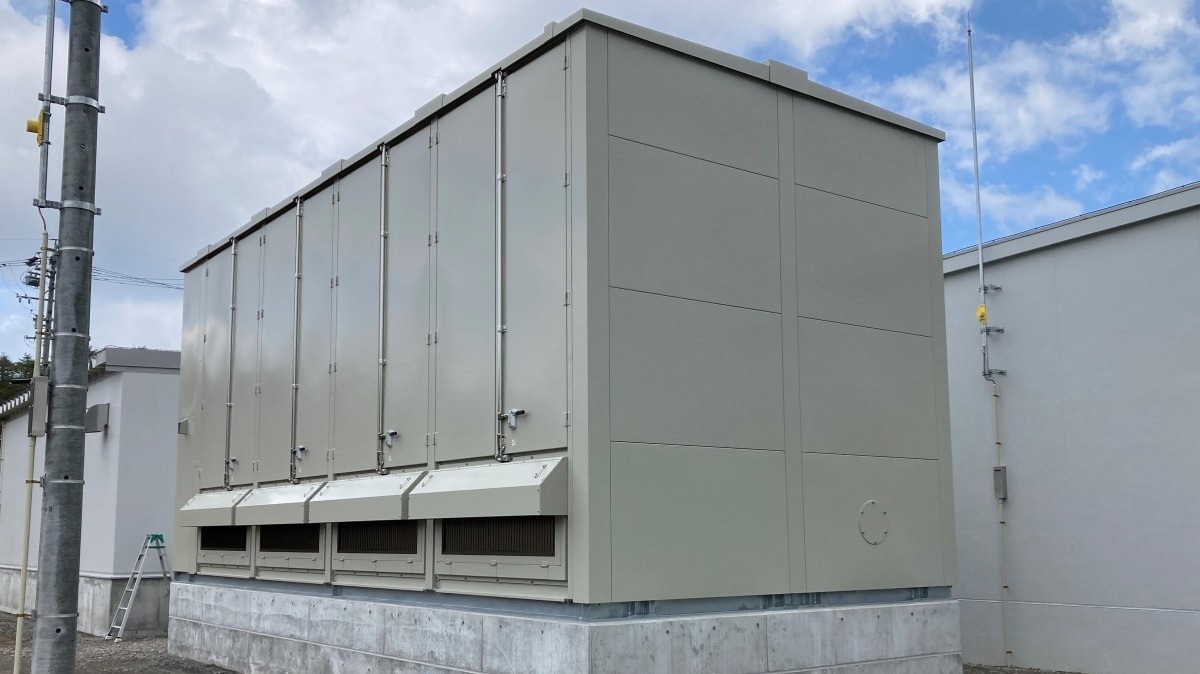NGK INSULATORS, LTD. (hereinafter “NGK”) delivered NAS batteries that have started operation at the Misasa Deep Space Station (hereinafter, “MDSS”) of the Japan Aerospace Exploration Agency (hereinafter, “JAXA”). The order for the batteries was received from MEIDENSHA CORPORATION.
 NAS batteries installed at Misasa Deep Space Station (MDSS). Image Credit: NGK INSULATORS, LTD
NAS batteries installed at Misasa Deep Space Station (MDSS). Image Credit: NGK INSULATORS, LTD
MDSS is a ground station that communicates with space probes through its large antenna, which is one of the largest in the world. Efforts are moving ahead with the purpose of further improving the reliability of tracking space probes such as the asteroid explorer Hayabusa2 and probes from the European Space Agency (ESA) and U.S. National Aeronautics and Space Administration (NASA), as well as for a business continuity plan (BCP), including the maintenance of emergency backup power sources. NAS batteries having large capacity as a strong feature were recently decided for use because they have a track record of being set up at JAXA Tanegashima Space Center, and capacity (discharge time), environmental tolerance, and lifecycle cost were highly evaluated.
NAS batteries will be used for the following applications:
1. Emergency Backup Power Source
MDSS is located deep in the mountains, so there are cases where it takes time to restore power in the event of a power line or other accident. In the event of a power failure, NAS batteries will be used to supply electric power to important facilities, such as the large-scale antenna, and prevent communication breakdowns with space probes. They will also strengthen responsive power in emergencies, such as the natural disasters that have become increasingly severe in recent years.
2. Measure against instantaneous voltage sags
NAS batteries are used as backup if an instantaneous voltage drop occurs and has an impact on the stable supply of electric power due to momentary voltage drops caused by lightning strikes or other factors. This avoids the equipment troubles caused by instantaneous voltage drops and contributes to stable facility operations.
3. Electric Power Load Leveling
Using electric power charged in NAS batteries when electric power consumption is lower, such as nights, allows the power to be discharged during daytime hours, when power consumption is high, leveling the power load in the facility and reducing contracted electric power consumption.
As NAS batteries have large capacity and a long discharge time, they are used in a variety of applications such as emergency power sources, balancing the supply and demand of electricity and stabilizing renewable energy, leading to a track record of installation in over 250 locations worldwide up until now. Going forward, NGK will further promote proposals and sales activities for NAS batteries for being large-capacity batteries with a rich track record, strengthening BCP measures and contributing to the stable supply of electric power.
Overview of the Delivered NAS Batteries
Installation site: Misasa Deep Space Station (Maeyama, Saku-shi, Nagano)
Rated output: 1,200 kilowatts
Rated capacity: 8,640 kilowatt-hours
Applications: Emergency backup power source, measure against instantaneous voltage drops, load leveling
Start of operation: December 15, 2022